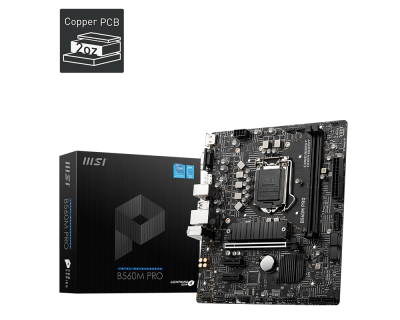Intel motherboard chipset naming scheme
Q, B prefixes = Business. Some B chipsets are assimilated into gaming motherboards.
H = Affordable mainstream board
Z = Performance Series
X = Supports high end desktop CPUs. Tends to be focused on overclocking but not really a hard and fast rule
For your CPU I would have personally gone for the Z series motherboard in order to capitalize on the K-suffix for overclocking.
Higher end components would usually must go with other higher end components so as not to gimp their performance.
Z series motherboard are ideal for CPU overclocking because they usually have good VRMs that are able to support such, while Q, B and H usually don't have as good VRMs as Z class motherboards do.
*There are some small exceptions however on the AMD side of things (if you have chosen an AMD cpu instead) where even a B class motherboard can do decent CPU overclocks
View: https://www.youtube.com/watch?v=CTM0EeRikFg
This is because any AMD CPU is not overclocked-restricted unlike Intel CPUs.
All AMD Ryzen CPUs are overclockable.
However if you were in a budget in the first place and sticking with Intel, I would have gone for a lower tiered Intel CPU.
For your i5 11600k CPU, I can confirm it is supported for all 3 motherboards that you've mentioned:
https://www.msi.com/Motherboard/support/MAG-B560M-BAZOOKA#support-main-block-qvl
PRO series motherboards, tuned for better performance by Core boost, DDR4 Boost, M.2 Shield Frozr, USB 3.2 Gen 1, Lightning Gen4, 2.5G LAN, Frozr AI Cooling

www.msi.com
Prime H570M-PLUS Intel® H570 (LGA 1200) micro ATX motherboard features PCIe 4.0, Two M.2 slots, USB 3.2 Gen 2 Type-C®, Thunderbolt™ 4 header support and Intel® 1 Gb Ethernet. Prime H570M-PLUS caters to daily users and all builders looking for well-rounded specs and a range of options for...

www.asus.com
When it comes to choosing motherboards:
What form factor of motherboard will fit your case? (This is very important. Buying an ATX or even an E-ATX motherboard to try to fit it to a small case is a big no no).
*Realized that you haven't mentioned what case you're using or you plan to use for your new PC build.
Note how many PCI-E lanes you'll get since that affects how many devices you can connect without affecting each PCI-E device's performance.
Consider the quality of the VRMs, especially if you're into overclocking. Usually you'll get reviews about this in tech websites and channels where they review the power regulation of the motherboard in depth.
How many SATA ports do you need?
How many M.2 slots do you need for NVMe SSDs?
Is the BIOS of the motherboard easy to use and understand? (You can youtube search "Motherboard Model + BIOS" to see what its BIOS looks like)
*This is an often overlooked aspect. but is essential in case you need to configure something with your PC in the future such as adjusting the speed of your fans or doing a simple change on the boot order. Try to get a grip of how to go around with the BIOS of the motherboard you want first first before you buy the motherboard.
For backup BIOS recovery, are you into single or dual bios chips?
Do you want built-in power, shutdown button and diagnosis LED indicators in your motherboard?
Do you want RGB in your motherboard?
It really boils down to your requirements and the quality of the motherboard. If it doesn't give you much headroom for future upgrades (i.e. you want to add an additional M.2 drive but you only can use 1 with your current motherboard), you might find yourself replacing motherboards in the near future. There can really be no definitive answer if this motherboard X is better than motherboard Y as it depends on the use case of the user and how many years is he planning to use it before his next upgrade.




